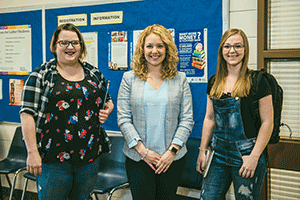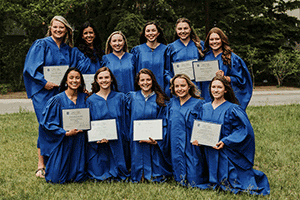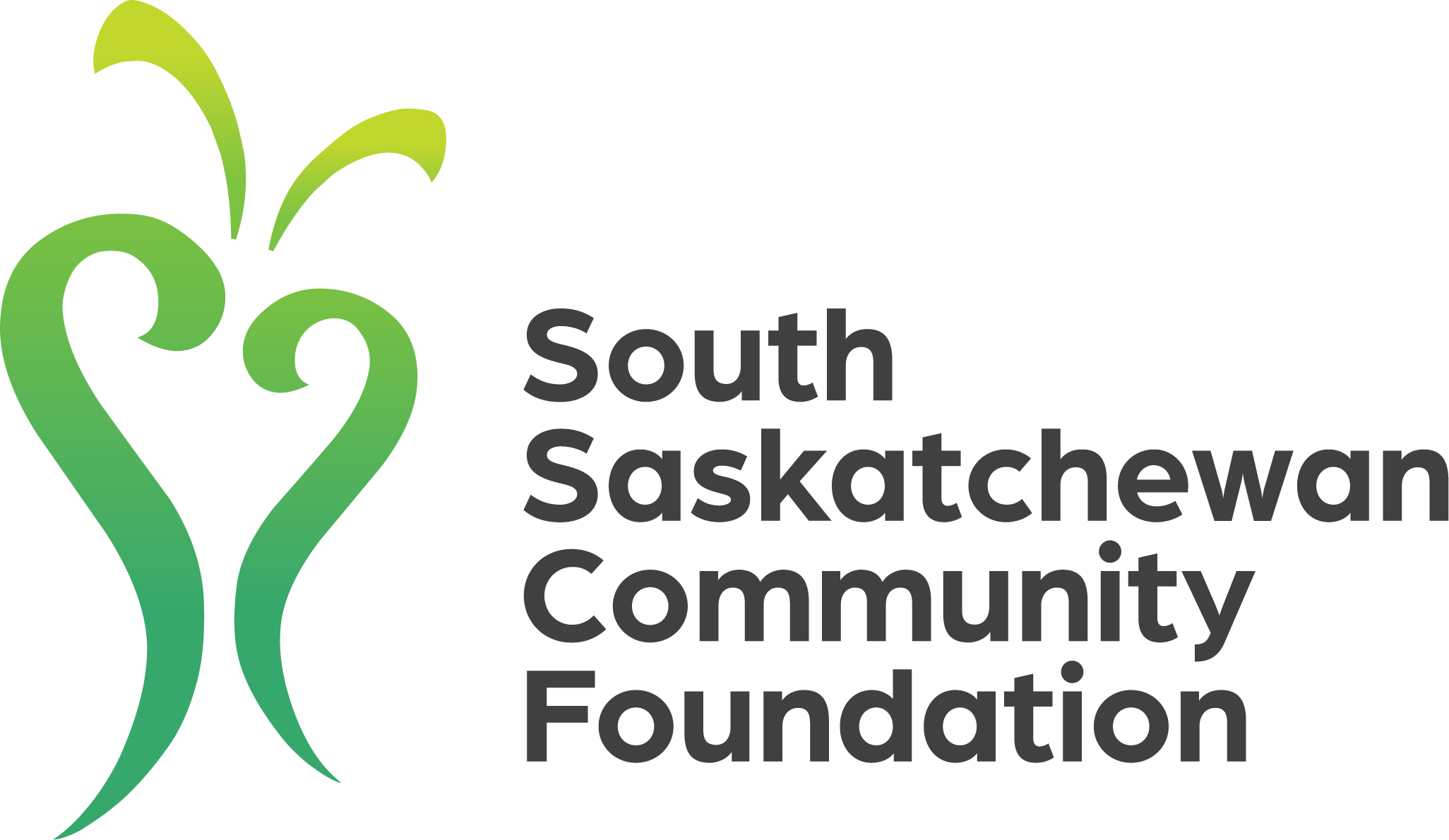Ready to learn more?
Get all the details straight to your inbox!

The priority deadline for academic application is March 15. To book a personalized enrolment counselling appointment, contact our Recruitment Office at 1-306-206-2117.

Luther College students are U of R students and receive all the same benefits. Upon graduation you will receive a U of R degree.

You can book a tour of Luther College, the U of R campus, and our student residence, The Student Village at Luther College, any time throughout the year. Contact our Recruitment Office at 1-306-206-2117.

Free enrolment counselling support and invaluable one-on-one academic advising are available for all programs at Luther College.

Living in The Student Village at Luther College, our student residence, comes with a choice of healthy, nutritious meal plans. That means no grocery shopping, no meals to cook, and no dirty dishes to worry about. You can focus on your studies and wellness!

Smaller class sizes at Luther College means more individualized attention and better connections with your professors, classmates, and academic advisors.

To enrol as a Luther College student, simply fill out the University of Regina application form and select Luther as your campus of choice.

Luther College is a great choice for high school to university transition. Enjoy all the benefits of a larger campus, without feeling lost in the crowd. Our community is full of caring mentors and peers to ensure a positive student experience.
Get all the details straight to your inbox!


Canadian non-profits have real expertise delivering services, designing programs, and working directly alongside people with lived experience. However, many struggle when it comes to translating this knowledge and experience into effective policy advocacy. Engaging in policy advocacy can be a daunting exercise, requiring sustained effort and investment of resources over an extended time period, and results often hinge on how well a nonprofit's efforts fit with government policy processes. At the same time, the recent abolishment of the so-called 10% rule means nonprofits are freer than ever to engage in policy advocacy on behalf of their communities, whether with municipal, provincial, or federal policy decision-makers.
Getting involved in policy advocacy can be made more straightforward through the application of a formalized, structured, and evaluation-ready framework to guide advocacy campaign planning. Breaking down the process into a set of discrete, well-defined steps better prepares boards to make informed decision on when and whether to commit resources to advocacy campaigns, and staff will be better positioned to achieve success if they have an implementation-ready guidebook to follow that still allows for flexibility and creativity. This workshop aims to equip nonprofit professionals with just such tools.
Over this one-day workshop, participants will be trained in the use of a straightforward advocacy campaign planning approach that takes them through a process of issue identification, problem definition, preliminary research and messaging, formal engagement with decision-makers, and evaluation of impacts. A follow-up session via Zoom will provide participants an opportunity to receive feedback and ask questions about their early efforts at implementing the planning tools provided during the workshop. While the workshop's focus will be on supporting the development of in-house advocacy campaigns, participants will also have the opportunity to network and learn from other nonprofit professionals about their advocacy objectives, potentially laying the groundwork for coalition building around shared interests.
 Our Facilitator: Dr. Cody Sharpe
Our Facilitator: Dr. Cody Sharpe
Dr. Sharpe holds a PhD in Public Policy from the Johnson-Shoyama Graduate School of Public Policy at the University of Saskatchewan. He has been a policy analyst, advisor, and advocate to governments and nonprofits for over 15 years and has experience working inside the Government of Alberta, Government of Saskatchewan, and Government of Canada. Dr. Sharpe serves on a variety of nonprofit boards, including the Regina Autism Resource Centre, Moose Jaw Public Library, and the Canadian Evaluation Society Education Fund. Dr. Sharpe currently works as an independent consultant to nonprofits and Indigenous government agencies and lives in Moose Jaw, Saskatchewan.
Details:
When: May 10, 2024 at 9:00 a.m. - 4:00 p.m.
Where: Luther College at the University of Regina
Snacks, coffee and lunch will be provided.
This event is being offered in partnership with the South Saskatchewan Community Foundation.
Registration for this event is now FULL. If you would like to be added to the waitlist, please email colleen.strauch@uregina.ca.